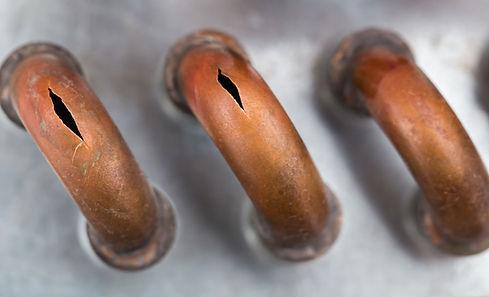Guide to Common Defects

Common defects found in residential surveys can vary depending on factors such as the age of the property, its construction materials, and the quality of previous maintenance or renovations. However, some typical defects that may be identified during a residential survey include:
-
Structural Issues:
-
Foundation cracks or settlement
-
Structural movement or instability
-
Roof framing defects
-
Wall or floor framing deficiencies
-
-
Roofing Problems:
-
Missing, damaged, or deteriorated roof covering (for example, concrete tiles, slates or asphalt roof coverings)
-
Leaks or water damage
-
Improper flashing or sealing around roof penetrations (chimneys or windows)
-
-
Dampness and Water Damage:
-
Moisture intrusion through roofs, walls, or foundations
-
Mould or mildew growth
-
Rot or decay in wood components
-
Plumbing leaks or water supply issues
-
-
Insulation and Ventilation Deficiencies:
-
Inadequate insulation in walls, attic, or crawl spaces
-
Poor ventilation leading to condensation or humidity build up
-
Lack of proper vapour barriers
-
-
Electrical Problems:
-
Outdated or unsafe wiring
-
Overloaded circuits
-
Faulty electrical outlets or switches
-
Inadequate grounding
-
-
Plumbing Issues:
-
Leaking pipes or fixtures
-
Poor drainage or sewer problems
-
Water heater defects
-
Low water pressure
-
-
Exterior Defects:
-
Cracked or damaged masonry
-
Bowing of external walls
-
Rotten timber
-
Inadequate or damaged exterior finishes (e.g., paint, stucco)
-
-
Safety Hazards:
-
Missing or defective smoke detectors
-
Unsafe stairways or railings
-
Faulty or outdated gas appliances
-
Fire hazards such as improper clearance around heating sources
-
-
Environmental Concerns:
-
Radon gas infiltration
-
Asbestos-containing materials
-
Lead-based paint hazards (common in older homes)
-
Identifying these defects during a residential survey is crucial for buyers, sellers, and homeowners to make informed decisions regarding the property's purchase, sale, or maintenance. Addressing these issues promptly can help prevent further damage, ensure safety, and maintain the value of the home.
